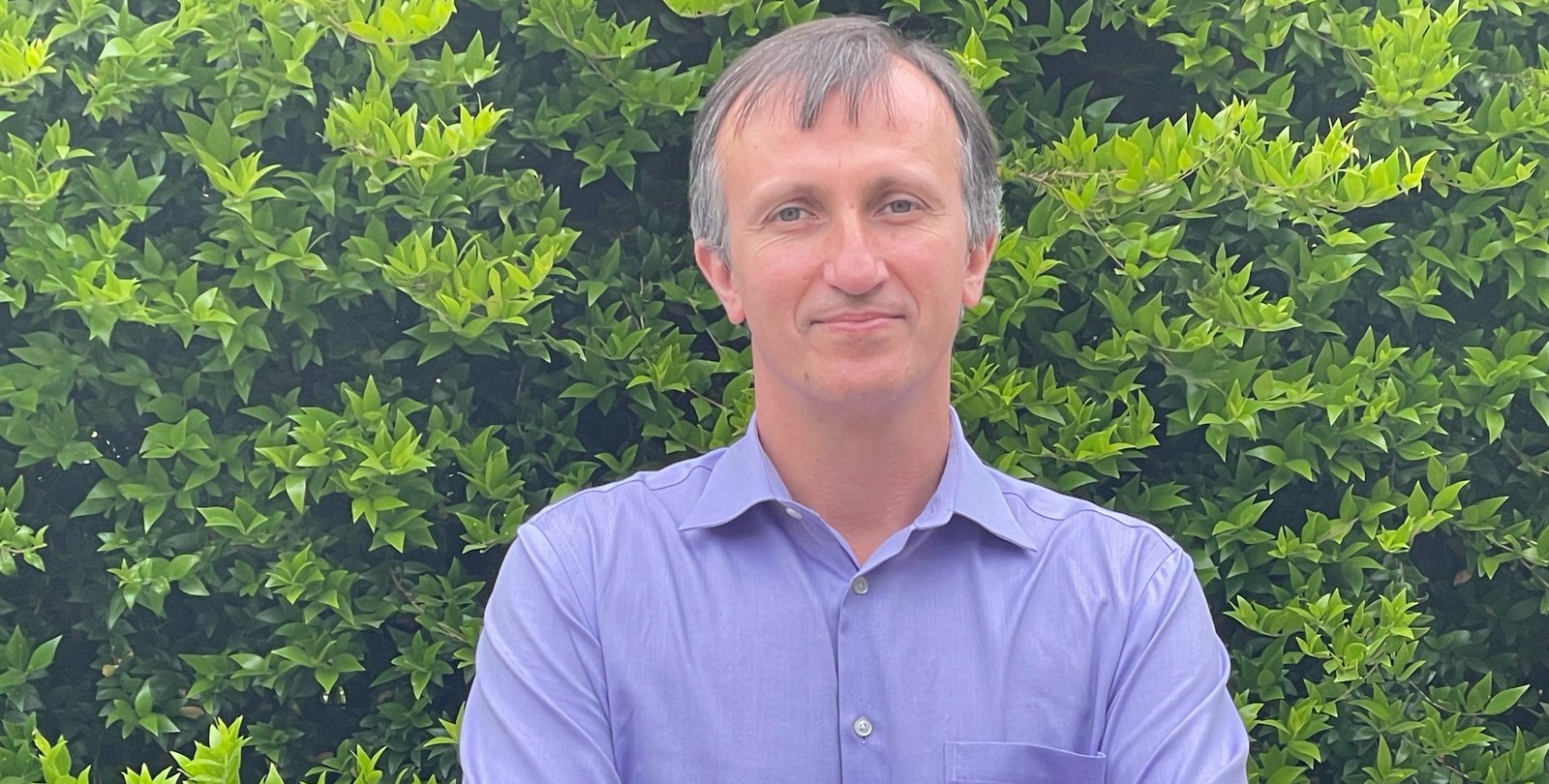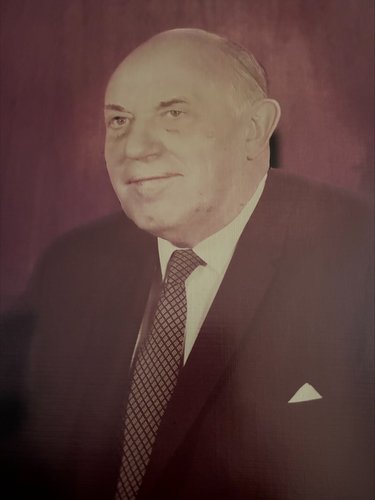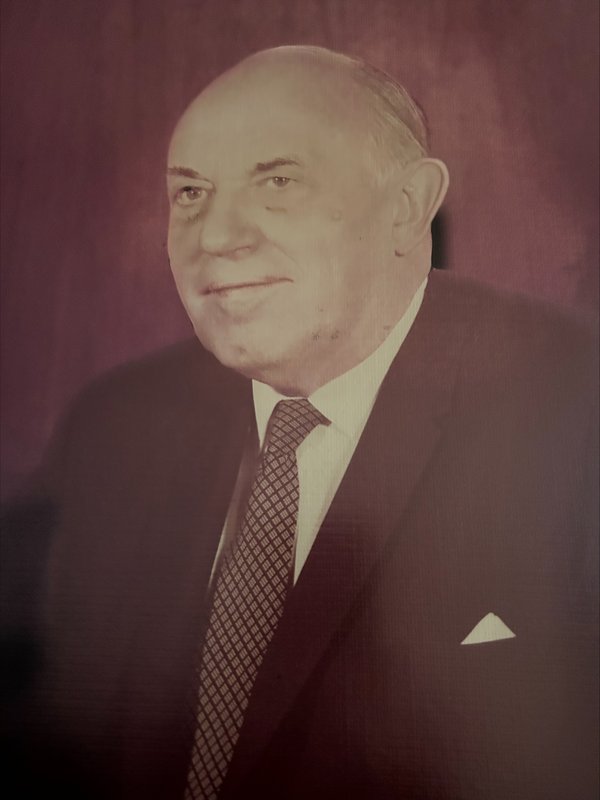
John Stauffer Charitable Trust Establishes Caltech Chemistry Professorship
Theodor Agapie is the inaugural holder of the new John Stauffer Professorship in Chemistry, which is funded by a generous $4 million donation from the John Stauffer Charitable Trust.
The John Stauffer Charitable Trust has endowed a new professorship in chemistry at Caltech with a $4 million gift.
"Endowed chairs are essential to our effort to sustain academic excellence," says Caltech Provost David Tirrell, the Ross McCollum-William H. Corcoran Professor of Chemistry and Chemical Engineering and holder of the Carl and Shirley Larson Provostial Chair. "They enhance Caltech's competitive advantage in attracting and retaining top scholars, offering stability as well as essential resources for research and innovation. We are thankful to the John Stauffer Charitable Trust for this new professorship, which promises to drive advances in the chemical sciences for future generations."
Chemist Theodor Agapie (PhD '07) has been named the inaugural John Stauffer Professor of Chemistry.


Catalyzing Chemistry Excellence
The John Stauffer Professorship continues a long and fruitful partnership between Caltech and the John Stauffer Charitable Trust, a private Pasadena-based foundation established in 1974 under the will of John Stauffer Jr., who was director of the Stauffer Chemical Company that his father co-founded in 1885.
"Mr. Stauffer was very interested in making sure high-quality training was available to people in the sciences," says trust co-trustee William Kruse. "I don't think he could have envisioned in the 1970s what we would be dealing with today, but he knew science was the way forward, and he himself was focused on technological advances. I think he'd be very proud of the things we've been able to support over the last 50 years."
In keeping with the trust's support of nonprofit hospitals and colleges in California, and its focus on university chemistry programs, the trust's earlier grants to Caltech have invested in people and infrastructure to enable leading-edge research and education. Previous gifts have endowed undergraduate scholarships in the physical sciences and a Summer Undergraduate Research Fellowships (SURF) program for the Division of Chemistry and Chemical Engineering (CCE). The trust also provided generous support for construction of the Warren and Katharine Schlinger Laboratory for Chemistry and Chemical Engineering.
"Caltech is one of those institutions that is easy for us to get behind because they are well run, they know how to recruit very talented people, and they shepherd their resources very carefully," Kruse says. "That's very attractive to us."
For the trust's latest gift, Kruse and his fellow trustees decided to focus on support that will help CCE attract and retain outstanding faculty. The trust specified that the new professorship should be offered to a tenured faculty member who is a nationally recognized expert in chemistry.
"Having a senior person in the role will assist the university in recruiting others to join in the research effort," Kruse says.
Chemistry Inspired by Nature
Agapie's selection as the inaugural John Stauffer Professor of Chemistry recognizes significant contributions he has made to the field, especially to understanding the chemistry of metals with potential applications in sustainable technologies.
Currently, his lab focuses on the development of new and practical catalysts—substances that accelerate chemical reactions—that are inspired by biological systems. Nature uses incredibly intricate catalysts made from both inorganic and organic components to carry out essential chemical reactions, such as photosynthesis. Agapie's team is preparing and studying metal clusters, which are combinations of multiple metal atoms with other elements, that are relevant for speeding up these chemical reactions.
"How these multi-metallic centers do their chemistry is not well understood," Agapie says, "and we're fascinated by that."
As an example of an application that has implications for sustainability, Agapie and his team have collaborated with other labs at Caltech to develop a technique that uses renewable energy to transform carbon dioxide (CO2) into the plastic precursor molecule ethylene. "Plastics are everywhere, and they're useful materials, so finding ways to make them in a more sustainable fashion is a really important scientific challenge," Agapie says. "Imagine a world where we sourced the carbon for plastics from carbon dioxide, rather than from petroleum."
Collaborative Chemistry at Caltech
For Agapie, what makes Caltech a special place for studying chemistry is its incredible collegiality. "A lot of science nowadays requires very diverse expertise, and it's easy at Caltech to interact with different groups, not only within chemistry, but also in different divisions. That makes working on interdisciplinary problems a lot more successful," he says.
"Also, when I was a graduate student here, I always felt there was a real partnership between the students and postdocs and faculty. Now, as a professor, I see my group members as experts in the projects they're working on, and they are teaching me. That's a lot of fun."
Born and raised in Bucharest, Romania, Agapie began his chemistry journey during high school, when he won two silver medals for the Romanian team at the International Chemistry Olympiads. He went on to earn a BS from MIT and a PhD from Caltech. He joined the Caltech faculty in 2009.
Agapie is a past recipient of a Presidential Early Career Award for Scientists and Engineers, a National Science Foundation Faculty Early Career Development (CAREER) Award, an Award in Pure Chemistry from the American Chemical Society, and a Friedrich Wilhelm Bessel Research Award from the Alexander von Humboldt Foundation. He has also been named a Cottrell Scholar, a Searle Scholar, and a Sloan Research Fellow.
"It's an honor for me personally, but, more importantly, it's also a tribute to the graduate students, postdocs, and undergraduates who have worked in my group over the years to advance our research," Agapie says about his appointment to the Stauffer Professorship.
This archived content may contain outdated information or references that may not reflect current practices or programs.
